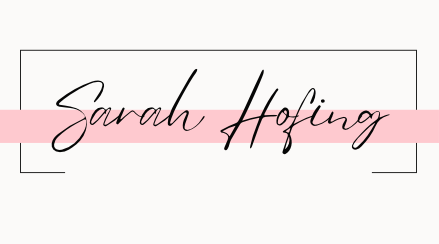The “Good Girl” Complex
As a child, I was constantly told that I was a "good girl." It was something I heard so often that it became a core part of my identity. I knew that if I did what was expected of me, if I was obedient and self-sacrificing, then I was considered "good." And I craved that praise and validation like nothing else.
I remember a time when I wasn't invited to a classmate's birthday party. But I was determined to go. So I made sure to compliment the classmate's mother on her appearance when I saw her at school. I knew that if I was polite and charming, I would increase my chances of being invited. And it worked. The classmate reluctantly invited me. It was a small victory, but it reinforced the idea that being a "good girl" was the key to getting what I wanted.
Over time, this need to be "good" became a burden. I felt trapped in a cage of other people's expectations and desires. I didn't know who I was or what I wanted out of life. I was on a path to becoming a teacher and then a principal, simply because that was what everyone else had decided for me.
But deep down, I had other dreams. I wanted to be an actress. When I found a program called Drama in Education, I thought it might be a way to combine my passion for acting with my need to be "good." But when I realized that teaching wasn't what I wanted to do, I became depressed and lost. It was the beginning of a long struggle with alcohol, which became a way for me to temporarily escape the pressure of being a "good girl."
But as much as I tried to run from it, the "good girl complex" was always there. It was a constant weight on my shoulders, telling me that I was never enough. That I needed to do more, be more, for others. And while I had been praised for being a "good girl" my whole life, I was never truly happy.
The praise for being a good girl fueled my perfectionism, leading me to believe that I had to be flawless in order to be loved and accepted. This is a common experience for many women; according to a study published in the journal PLOS One, over 70% of college students report feeling pressure to be perfect. However, perfectionism can be a risk factor for mental health issues such as anxiety, depression, and eating disorders. It's important to recognize the impact of societal expectations and pressures on our mental health and well-being
Examples of this complex can be found in many popular works of fiction as well. Take, for instance, the character of Katniss Everdeen from Suzanne Collins' The Hunger Games. Living in a society that demands compliance and submission from girls, Katniss finds herself struggling with the good girl complex. Despite this, she rebels against the societal expectations and ultimately becomes a symbol of resistance against an oppressive government. However, her non-conformity also brings criticism and backlash, highlighting the difficult and often conflicting nature of breaking free from this complex.
Some effective tools to help begin the process of breaking free from the “good girl complex” is;
1) Meditation: Check out my People Pleasing with Swearing meditation. I promise it will make you laugh and cry.
2) Journal or Voice Note: I always tell my clients that if you love journaling then go for it and put a timer on and let yourself free write for a few minutes. Many people like the idea of journaling but don’t actually want to do it. This is where voice notes on your phone can be a game changer. Allow yourself to process and get the information out of your mind but do it while walking.
3) Stop Negative Self-Talk: This is difficult when it has been on a loop your whole life. When you have developed the pattern of the “good girl complex” and have a need to be perfect, speaking negatively to yourself is familiar. Start to bring awareness in when you notice that there is the negative self-talk. Interrupt it and say, whose thought is that? whose opinion is that? I believe that your inner voice is what was told to you as a child.
It took me years of hard work to break free from the "good girl complex." I had to learn how to set boundaries, prioritize my own needs, and find my own voice. But through that journey, I discovered my true purpose: to help other women break free from the same cage that I had been trapped in. Today, I work with women to help them find their power, heal from the effects of perfectionism, and rise above societal expectations.
The "good girl complex" is something that affects so many of us. But the more we talk about it, the more we can free ourselves and future generations from its grasp. It's time to step out of the cage and into our own power.
If you're ready to break free from the good girl complex and raise your vibration in communication, I invite you to join my upcoming course for single women. In this course, you'll learn practical tools and strategies to build self-awareness, boost your confidence, and communicate authentically and effectively. You'll connect with a supportive community of like-minded women and receive personalized coaching from me weekly in an email with video lessons, worksheets and weekly audio of my husband Chris and I talking about how we have worked on raising the vibration in our own relationship. The goal of this course is to help you overcome limiting beliefs and step into your power. Don't miss out on this opportunity to transform your communication and your life. Sign up now and start receiving weekly course content beginning May 15th!
